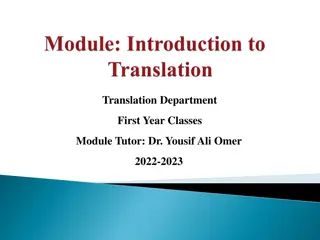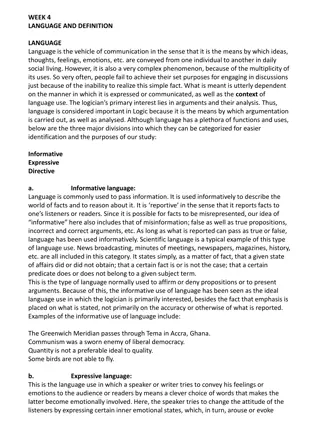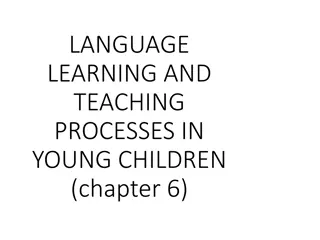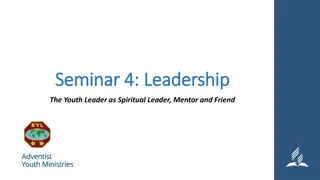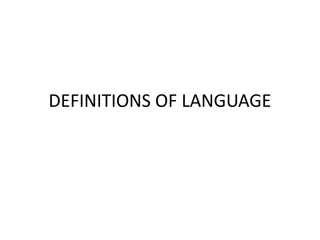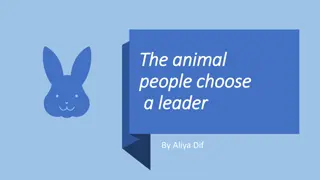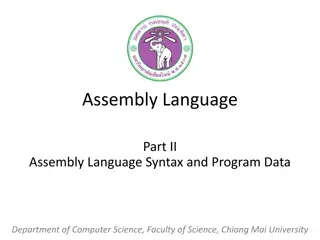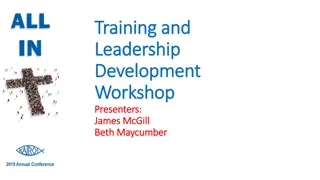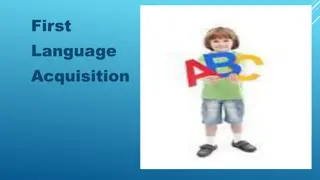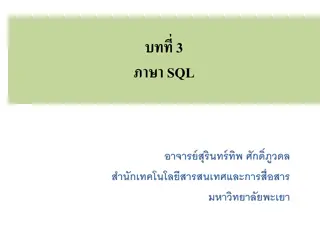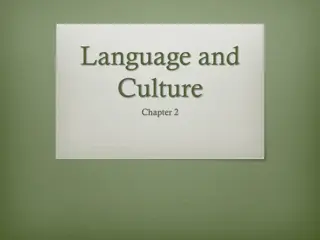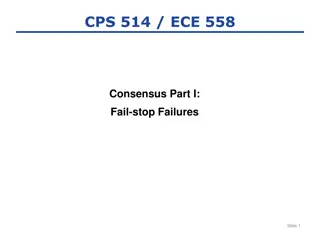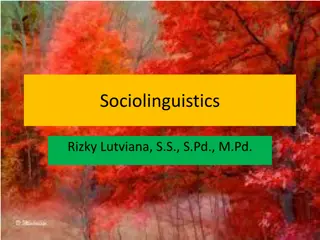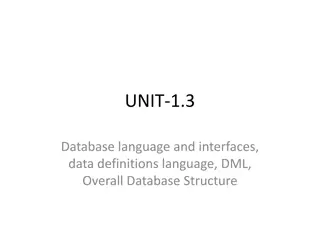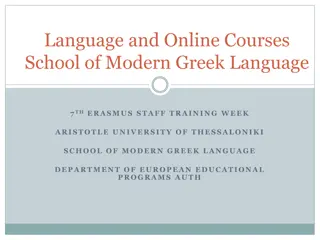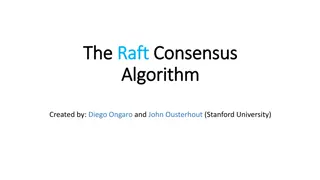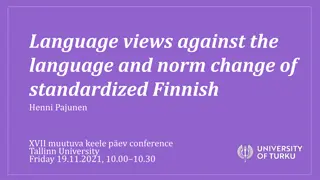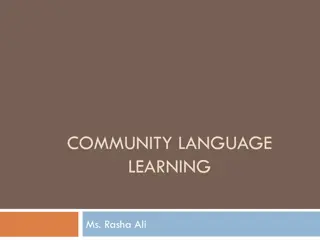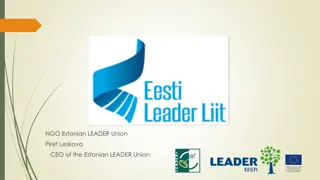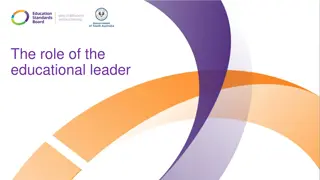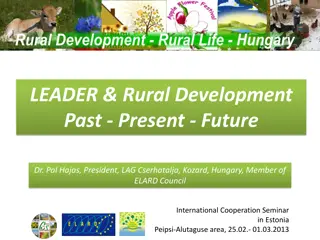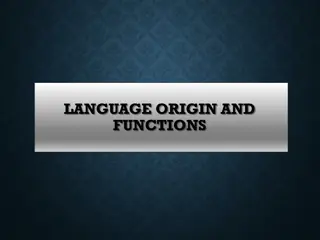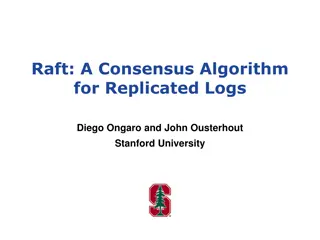Career Opportunities and Challenges in Translation & Interpreting Pedagogy Post-Pandemic
The APTIS 2022 conference explores new avenues in Translation and Interpreting (T&I) pedagogy amidst a changing landscape. Dr. Bego A. Rodriguez highlights emerging roles for T&I graduates. The context reveals a decline in language learning in the UK, impacting the Language Service Industry. The UK'
1 views • 13 slides
Language Study Community – Enhance Your Language Skills
Joining a Language Study Group is a fantastic way to take your language learning to the next level. By leveraging the power of Group Study, you can immerse yourself in the language, enhance your understanding, and build confidence in your speaking abilities. Read full article \/\/explainlearning.com
1 views • 3 slides
Academic Language Demands and Supports in Instructional Planning
Academic Language Demands and Supports are crucial in educational settings to ensure comprehension and usage of language by students. This content discusses embedding language demands in lesson plans, providing language supports, and peer review activities to enhance academic language skills. The fo
6 views • 10 slides
The Significance of Media in Language Learning
Media plays a crucial role in language learning by raising awareness of the ideology behind linguistic structures and providing valuable information on society and culture. Linguists are drawn to media language for research purposes and to understand its impact on language use and attitudes. Media s
12 views • 5 slides
Translation: Key Concepts and Definitions
Translation involves transferring written text from one language to another, while interpreting deals with oral communication. Etymologically, the term "translation" comes from Latin meaning "to carry over." It is a process of replacing an original text with another in a different language. Translat
12 views • 76 slides
Language and Communication in Society: Understanding Interactions
Explore the intricate relationship between language and society through lectures focusing on language in interaction, power dynamics, language contact and change, public space discourse, linguistic landscaping, and more. Delve into the shift from structural linguistics to societal communication, red
6 views • 28 slides
Language: Informative, Expressive, and Directive Uses
Language serves as a vital medium for communication, allowing the conveyance of ideas, thoughts, and emotions. It is a complex phenomenon with diverse uses. This text delves into the three major divisions of language use - informative, expressive, and directive. Informative language conveys facts, w
4 views • 6 slides
Language Learning and Teaching Processes in Young Children
Development of language in young children is influenced by various factors such as their cultural and linguistic environment, unique characteristics, and interactions with adults. Optimal language development requires language stimulation from the environment. Varied cultural practices impact langua
1 views • 51 slides
Developing the Christian Youth Leader: A Journey of Spiritual Leadership
Explore the essence of spiritual leadership in Christian youth ministry, emphasizing the leader's role as a follower of Christ and mentor to the youth. Learn how spirituality shapes social interactions and the holistic approach to being a Christian leader. Dive into the foundational principles of le
0 views • 24 slides
Various Definitions of Language Throughout Linguistic History
Different linguists and scholars have offered various definitions of language over time. Sapir (1921) emphasized language as a method of communicating ideas, emotions, and desires through voluntary symbols. Bloch and Trager (1942) focused on the social aspect of language as a system of vocal symbols
2 views • 12 slides
Wapoose: The Inspirational Leader in "The Animal People Choose a Leader" by Aliya Dif
In "The Animal People Choose a Leader," a heartwarming short story by Aliya Dif, Wapoose, a tiny rabbit, defies stereotypes and emerges as a compassionate and determined leader. Despite doubts from larger animals, Wapoose's kindness, determination, honor, and patience shine through as she leads the
0 views • 11 slides
Introduction to Assembly Language Syntax and Program Data
Learn about the syntax of assembly language and how data, variables, and constants are used in programming. Explore the basic instructions and the translation of high-level language into assembly language. Discover the role of an assembler in translating assembly language programs into machine langu
5 views • 36 slides
Enhancing Language Learning Across the Curriculum in B.Ed. 1st Year Course
Language Across the Curriculum (LAC) emphasizes that language learning should occur across all subjects, not just in language classrooms. It highlights the importance of incorporating language development into every learning activity, fostering multilingualism in schools. Language plays a crucial ro
3 views • 34 slides
Comprehensive Leadership Development Workshop Presentations
Explore key topics such as the qualities of a good leader, identifying a Kairos leader, engaging and supporting leaders, and avoiding common pitfalls in leadership. Learn about servant leadership, effective communication, mentoring, and staying focused on the mission amidst challenges. Empower yours
0 views • 21 slides
Price-Output Determination Under Low-Cost Price Leadership
Economists have developed models on price-output determination under price leadership, with assumptions about leader and follower behavior. In this scenario, two firms, A and B, with equal market share and homogeneous products, navigate pricing strategies based on cost differentials. Firm A, with lo
2 views • 7 slides
First Language Acquisition Process
First language acquisition is the process through which humans develop the capacity to perceive, comprehend, and effectively use language to communicate. It primarily focuses on infants acquiring their native language. Basic requirements, caregiver speech features, and the acquisition schedule play
1 views • 19 slides
Comprehensive Overview of SQL Commands and Language Categories
In this detailed guide, you will learn about Structured Query Language (SQL) including its various commands such as Data Definition Language (DDL), Data Manipulation Language (DML), Data Control Language (DCL), and Transaction Control Language (TCL). Explore how SQL is used in Database Management Sy
0 views • 15 slides
Distributed Algorithms for Leader Election in Anonymous Systems
Distributed algorithms play a crucial role in leader election within anonymous systems where nodes lack unique identifiers. The content discusses the challenges and impossibility results of deterministic leader election in such systems. It explains synchronous and asynchronous distributed algorithms
2 views • 11 slides
Speech and Language Developmental Milestones: A Bilingual/Multilingual Perspective
Speech and language developmental milestones are crucial for children, regardless of their home language. These milestones encompass receptive language, expressive language, pragmatics, and articulation and phonology. Understanding how a child hears and talks from birth to one year is essential, as
1 views • 23 slides
Analyzing Writer's Language Use in English Language GCSE Component 2
In English Language GCSE Component 2, students learn to analyze how writers use language. The learning objective focuses on commenting, explaining, and analyzing language use with relevant subject terminology. The exam assesses students on their ability to interpret and explain a writer's thoughts,
0 views • 12 slides
Language and Culture Reflections: Diversity in Linguistic Emphasis
Exploring the correlation between language and culture, this content delves into how various languages reflect cultural values and priorities. Through examples like the Inuit language with rich vocabulary for snow and seals, the Shinzwani culture's unique word for mother and aunt, and the evolving l
1 views • 50 slides
Raft Consensus Algorithm Overview
Raft is a consensus algorithm designed for fault-tolerant replication of logs in distributed systems. It ensures that multiple servers maintain identical states for fault tolerance in various services like file systems, databases, and key-value stores. Raft employs a leader-based approach where one
0 views • 34 slides
Introduction to Language Technologies at Jožef Stefan International Postgraduate School
This module on Knowledge Technologies at Jožef Stefan International Postgraduate School explores various aspects of Language Technologies, including Computational Linguistics, Natural Language Processing, and Human Language Technologies. The course covers computer processing of natural language, ap
0 views • 27 slides
Sociolinguistics: Language Variation and Social Factors
Sociolinguistics delves into the study of language variation influenced by social factors, examining the relationship between language and its social context. It explores various aspects like standard pronunciation, language choice, speech acts, language components, language variety, and factors suc
0 views • 73 slides
Assembly Language Programming for Computing Layers
Assembly language is a low-level programming language that enables direct interaction with a computer's hardware components. This content explores the fundamentals of assembly language, the relationship between human-readable machine language and binary code, an assembly language program for multipl
1 views • 31 slides
Database Language and Interfaces Overview
A database management system (DBMS) requires appropriate languages and interfaces to handle queries and updates for data manipulation and control. This includes Data Definition Language (DDL), Data Manipulation Language (DML), Data Control Language (DCL), and Transaction Control Language (TCL). Each
1 views • 12 slides
Language Anxiety in Foreign Language Learning and Teaching
Explore the impact of language anxiety on students and teachers in foreign language learning and teaching contexts through insights from Dr. Christina Gkonou's research. Delve into the theoretical background, implications for language education, and real-life experiences shared at the Essex Language
0 views • 25 slides
Strengthening Language Rights: Official Languages (Amendment) Act 2021
The Official Languages (Amendment) Act 2021, enacted to strengthen the language rights of Irish speakers, introduces provisions for public bodies' communications in official languages. Section 10A requires public bodies to allocate a minimum of 20% of advertising in Irish and 5% of ad expenditure in
0 views • 49 slides
School of Modern Greek Language: Courses, Seminars, and Assessment Overview
Explore the School of Modern Greek Language at Aristotle University of Thessaloniki offering language courses, seminars for teachers, and assessment exams. Founded in 1970, the school provides a multicultural environment for students worldwide, emphasizing Greek culture and offering a variety of lan
0 views • 17 slides
The Raft Consensus Algorithm: Basics and Leader Election
Raft is a consensus algorithm designed by Diego Ongaro and John Ousterhout at Stanford University for practical systems. It simplifies understanding through leader-follower structure and terms for leader election. Nodes transition between Follower, Leader, and Candidate states, initiating elections
0 views • 21 slides
Language Views and Norm Change in Standardized Finnish: An Examination by Henni Pajunen
Henni Pajunen explores language views and resistance to norm change in standardized Finnish at the XVII Muutuva Keele Päev Conference. The research delves into language planning in Finland, historical shifts in Finnish language norms, and specific orthographic norms relating to verbs. The study she
0 views • 21 slides
Effective Community Language Learning Method by Ms. Rasha Ali
Community Language Learning (CLL) method emphasizes understanding students' feelings and creating a supportive environment for language learning. This approach, influenced by the Counseling-Learning approach, focuses on building relationships, reducing anxiety, and promoting effective communication
1 views • 15 slides
Unleashing Leadership Potential: A Guide to Becoming a Powerful Leader
Understanding the essence of leadership, this guide explores the definition of a leader, their role, various leadership styles, and the traits of effective leaders. It delves into self-assessment, discussing what it takes to excel as a leader and providing insights into leadership in business contex
0 views • 19 slides
Estonian LEADER Union - Empowering Rural Development in Estonia
The Estonian LEADER Union, a non-profit organization, supports local action groups in implementing LEADER principles for rural development in Estonia. With a strong focus on cooperation and advocacy, the union facilitates international partnerships and ensures effective implementation of LEADER meas
0 views • 7 slides
The Role of the Educational Leader in Early Childhood Education
In early childhood education, the educational leader plays a crucial role in leading the development and implementation of educational programs. Studies show that effective leadership positively impacts the quality of the workplace, education provided, and outcomes for children. The selection of an
0 views • 12 slides
Leadership Reflection: The Leader as a Director
Exploring the concept of a leader as a director through a residency portfolio reflection at Marshall University Graduate College. This reflection delves into the roles of a leader in casting, editing, and meeting with followers, drawing parallels between leadership and directing in a school setting.
0 views • 30 slides
Evolution of LEADER and Rural Development in Hungary: Past, Present, and Future
Dr. Pal Hajas, President of LAG Cserhatalja, Kozard, Hungary, and Member of ELARD Council, reflects on the evolution of LEADER and rural development in Hungary from 2003-2013. The past initiatives highlight experimental LEADER stages with community involvement and methodology development. Transition
0 views • 36 slides
The Origin and Functions of Language
Exploring the origin of language, this content delves into the historical perspective of when and how human language evolved. It discusses the role of language in human society, its functions in socialization, information exchange, commanding, persuading, and influencing. Additionally, it touches up
0 views • 8 slides
Activity Leader Guidelines for Volunteers
Welcome to the role of a leader, driver, or bus captain! As a leader, it is essential to familiarize yourself with the provided leader packets, understand the details of the activity, and prioritize safety. Taking pride in being a leader, owning the activity before the event, ensuring your packet is
0 views • 25 slides
Raft: A Consensus Algorithm for Replicated Logs Overview
Raft is a consensus algorithm developed by Diego Ongaro and John Ousterhout at Stanford University. It aims to ensure replicated log clients and consensus modules maintain proper log replication and state machine execution across servers. Raft utilizes leader election, normal operation for log repli
0 views • 31 slides




